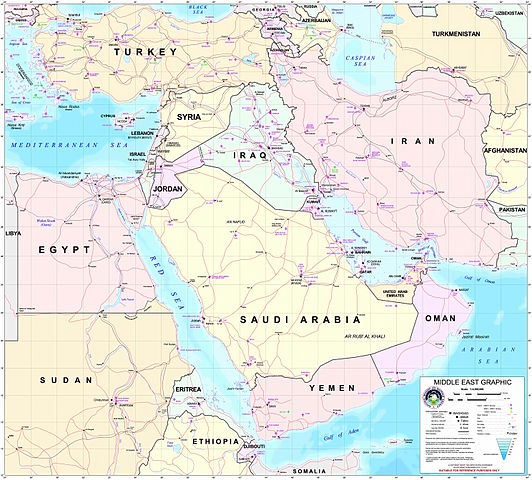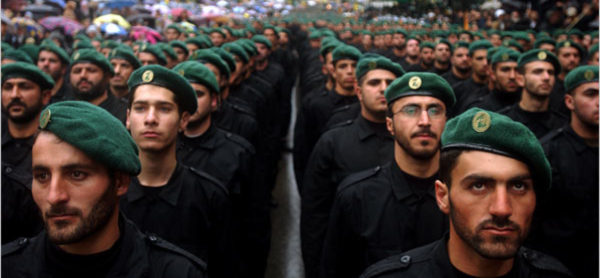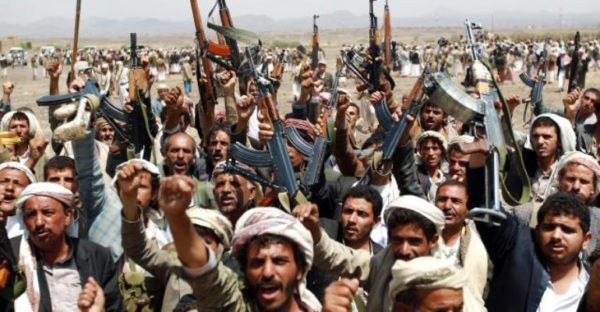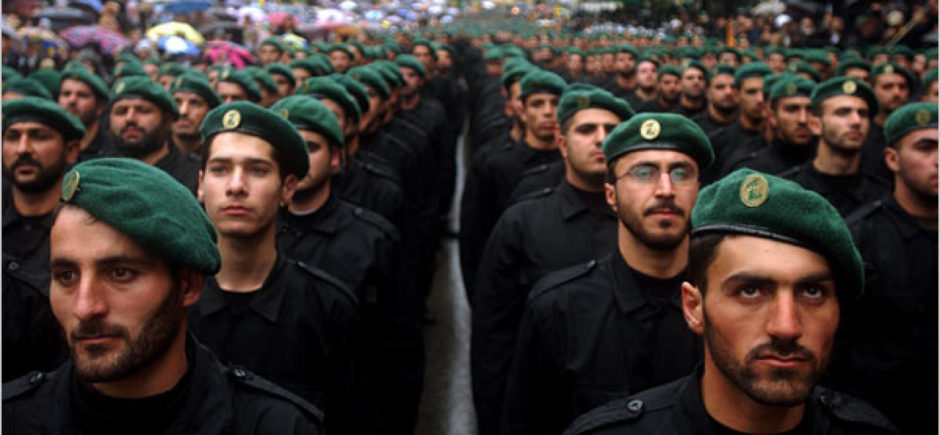Two interlinked wars may be coming to the Middle East. Either could break out within a few years’ time.
One conflict will pit Israel against an Iranian-led coalition based in Lebanon and Syria.
Another may well erupt between Saudi Arabia and its Sunni allies in the Persian Gulf on the one side, and Iran and its Shia proxy armies on the other, for hegemony in the Muslim Middle East.

Tensions have been building on Israel’s northern fronts with Syria and Lebanon as Shia militias loyal to Tehran, alongside the regular Syrian army, complete their victory over the Islamic State and other Sunni forces.
Iran’s plans to entrench and consolidate an anti-Israel military front in Syria include long-term military strongholds, a permanently deployed proxy army and the creation of industrial facilities for the production of precision rockets in Syria and Lebanon.
Tehran is building a land corridor from Iran through Iraq and Syria to the Mediterranean Sea. This will further consolidate Iran’s already significant sway over the governments of Iraq, Syria, and Lebanon. The route would physically link Hezbollah in Lebanon, the regime Bashar al-Assad in Syria, and the Iranian satellite government in Baghdad.

Iranian military plans include the creation of a naval base not far from the Russian base in Tartus, an air base near Damascus, and a ground base for armed sectarian forces under Iranian command south of Damascus.
Tehran is changing into a powerful geopolitical player whose influence will be projected hundreds and maybe thousands of kilometers beyond its borders.
During the Syrian civil war, Iran created a number of Hezbollah-type militia forces. These include the pro-regime National Defence Forces in Syria and the Iraqi Popular Mobilization Forces, an umbrella organization composed of some 40 militias.
These groups have helped win the civil war for Assad’s Alawite Shiite regime. Meanwhile, Sunni Arab efforts to assist the rebels, in which Saudi Arabia played a large role, ended largely in shambles.
In Iraq, the ruling Islamic Dawa Party is traditionally pro-Iranian, while the militant Badr Organization controls the powerful interior ministry, which has allowed it to blur the boundaries between the official armed forces and its own soldiers.
In October, it appears that Iran helped Baghdad retake the disputed city of Kirkuk from the Kurds following the ill-fated referendum on Kurdish independence.
Lebanon is now effectively an Iranian vassal state. The establishment of a cabinet dominated by Hezbollah in December 2016, and the appointment of Hezbollah’s ally Michel Aoun as president two months earlier, solidified Iran’s grasp over the country.
Saudi Arabia’s bizarre attempt to force Lebanese Prime Minister Saad al-Hariri to resign last November — which he later withdrew — also demonstrated the ineptness of Saudi policy.
In a future northern war, therefore, Israel expects to encounter the battle-hardened Hezbollah along with a reconstructed Syrian army, backed by Iran.
Seyyed Abdolrahim Mousavi, the current commander-in-chief of Iran’s army, warned Israel in October that Tehran can “destroy the Zionist entity at lightning speed, and thus shorten the 25 years it still has left.” He threatened to “turn Tel Aviv and Haifa into dust.”
Elsewhere, too, Iranian leaders have been brilliant in their ability to play internal fissures and grievances across the region to Tehran’s advantage. They see a map not of crumbling artificial states, but rather one of ethnic, political, and sectarian divides.
The Sunni rulers of Saudi Arab,Yemen and the Gulf states have reason to worry. With its ability to monopolize Shiite religious authority, Iran has been able to utilize minority communities across the region.
Saudi Arabia’s oil-rich Eastern Province and neighboring Bahrain are heavily Shiite and these populations harbor grievances against their rulers. Bahrain is so afraid it has even sent out feelers towards Israel.
Meanwhile, the Saudi-led ineffectual embargo of Qatar has driven the gas and oil-rich emirate closer to Iran.

The Houthis in Yemen, who are Zaydi Shias, are now gaining ground in a civil war with Iranian help, despite direct Saudi intervention. They have even fired Iranian-made missiles at Riyadh. They may well prove to be the Islamic Republic’s breakthrough on the southwestern corner of the Arabian Peninsula. This would provide Iran with the ability to control the mouth of the Red Sea.
Iran has been able to establish non-state allies in various countries, which give it political and military influence without the need to deploy Iranian troops. Tehran is winning the battle for the Middle East — even without nuclear weapons.
Henry Srebrnik is a professor of political science at the University of Prince Edward Island.

